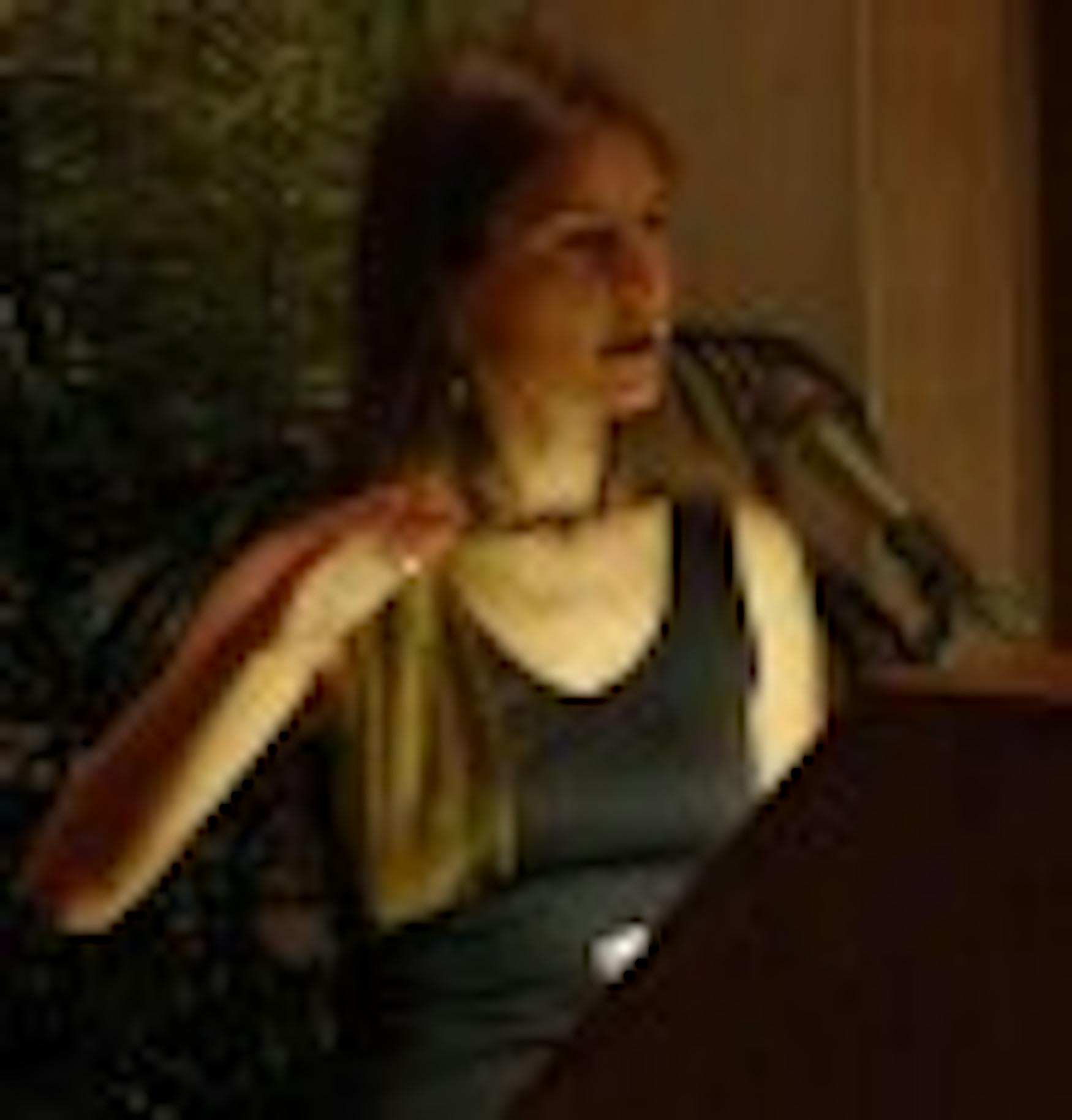Journalist presents about reporting on international conflicts
Anna Badkhen, a freelance war reporter and author, came to campus last Wednesday for a book signing for her new novel, Peace Meals, which stresses the importance food holds in every culture. In addition to the book signing, Badkhen gave a short presentation detailing her experiences with reporting in war zones and a lengthy question-and-answer session.Badkhen is a freelance reporter whose work has appeared in various newspapers across the country. She has reported from Afghanistan, Somalia, Iraq, Israel, Chechnya, Kashmir and the Palestinian territories.
The Social Justice Leadership Series; the Schuster Institute for Investigative Journalism; the Black Student Organization; College Democrats; the International Center for Ethics, Justice and Public Life; the Journalism department; and the Office of the Provost all co-sponsored the event.
In her speech before the question-and-answer session, Badkhen said that one of her goals in writing her novel, Peace Meals, was to remind everyone that the people living in war zones are real and that everyone can relate to them even though their situations are out of the ordinary. She said that "the one thing all people can relate to is food," and she explained that dining can be seen as an act of defiance against war because "meals are celebrations."
In regard to her experience covering conflicts, Badkhen said that a journalist's job is to prevent the public from putting up an emotional wall about the violence occurring in wars. Reporters are "not going to be able to stop the wars, but we can tell stories about the people," she told the audience.
Throughout the night, Badkhen stressed that being an informed citizen can help improve the world. When one student asked how simply being informed can make a difference, she answered, "If you know something you think makes [the world] better, share that with your family. Imagine the difference in the world if you share those nice things."
Shirel Guez '12 asked Badkhen if she is ever frightened while reporting in a war zone, and if so, how she overcomes that fear. Badkhen responded by saying that it is "important to be afraid, important to be vulnerable. We can't convey the vulnerability of others without being vulnerable as well."
Upon being asked if she will ever get used to seeing the situation in war zones, Badkhen answered unaffirmatively. She said, "We're not built to get used to being under threat. It is important to not get used to it, because if we become immune, we should find another job."
In response to a question about her expectations of reporting, Badkhen said that nothing about war zone reporting was what she expected it to be. She said she had never seen so much poverty and grief nor such determined people in her life. She said, "It is amazing how strong we all are, how we all survive."
Students expressed awe about Badkhen's experiences. In an e-mail interview with the Justice several days after the event, Allyson Cartter '13 wrote, "I thought Anna's message was powerful, especially her focus on humanity and human interactions, and on the good that we as consumers of the media can accomplish. The subjects she interviewed were people first and foremost, each with individual experiences and stories to tell, and were not defined by what they did or what had been done to them, which is important."
Editor's note: Allyson Cartter '13 is a member of the Justice Copy staff.



Please note All comments are eligible for publication in The Justice.